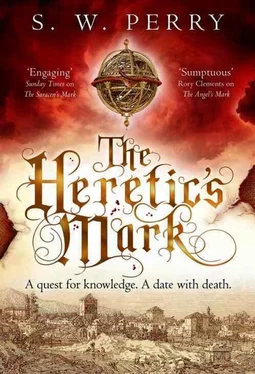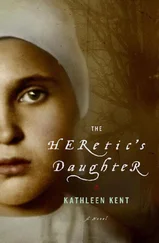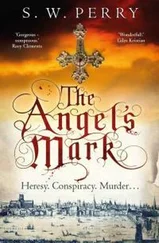So engrossed in these practicalities is Bruno that it is only in the instant before they collide that he notices the man hurrying towards him from the opposite direction.
They meet at the crown of the bridge. Bruno opens his mouth to apologize. Or to protest. Later, he won’t be able to remember which. He catches only an indistinct impression of someone in a plain grey coat, his leather half-boots playing a staccato drumbeat on the pavement, a black cap of Germanic style on his head. He might have heard a muttered apology, but there again he might not. And if he did, it was in a foreign language. Sotto voce .
The collision is glancing, shoulder-to-shoulder. But it is enough to make Bruno – by a good margin the smaller of the two – stumble.
When he has regained his balance, he turns. But all he sees is the man’s back, disappearing into a lane adjacent to the one from which he himself emerged just a few moments before. He utters a coarse condemnation of the foreign students at the university and their deplorable manners. It does not occur to Bruno for a moment that he might have veered into the man’s path because he was distracted. Nor is his mind clear enough to connect the man in the grey coat with the description Nicholas had given a few days before.
The man who rents the storehouse – from another man who rents the storehouse – has provided Bruno with a key to the side-door. Bruno has become concerned that the theatrical rapping of an appropriate code on the big entry doors at the front is too likely to attract attention. But when he follows the side-wall, he sees that the smaller, single door is ajar.
He hears the buzzing of the flies – smells the blood – even before he puts one smartly booted foot across the threshold.
The interior is hot and stuffy, neatly partitioned by columns of evening sunlight lancing down from the high windows. They fall upon the cradle of the great sphere, remaking it as an altar or tabernacle dedicated to some ancient pagan god. Lying across one of them is a body, the arms stretched out in the stance of a diver caught mid-plunge. As Bruno approaches, the little cloud of flies lifts and disperses, like fragments of a soul fleeing heavenwards. He stops a few paces away, his heart pounding.
Face-down, the youth’s head has been battered against the floor, the bloodied tangled hair dishevelled. Lying discarded across the neck is an iron bar, part of the sphere’s internal mechanism. Even before he moves closer to kneel beside the body, Bruno knows he is looking at the corpse of Matteo Fedele.
Searching for a pulse seems pointless. The back of Matteo’s head looks as though it has been savaged by the claws of a wild beast. A broad trail of blood smeared across the flagstones marks his desperate but ultimately futile attempt to crawl away from his attacker, even as the blows rained down and the life drained out of him. But in forlorn hope, Bruno does so. He finds nothing. But Matteo has not been dead for long. Warmth still lingers in the flesh.
Leaving Matteo’s body, Bruno embarks on an inspection of the storehouse. His first thoughts, to his shame, are for the sphere. He checks to see if any of the stacks of parts have been smashed or stolen. He finds them intact, save for a few sections of gilded wooden rings – now bloodstained – that have been scattered during Matteo’s desperate struggle to escape. He offers up a brief prayer of repentance to the nearest beam of sunlight for his insensitivity and turns his attention back to the crime.
Following the winding wake of smeared blood, he comes across the place where he assumes the attack began. It is in a corner, well away from the main entrance or the side-door, marked by a sudden spray of crimson droplets. A surprise attack then, after Matteo invited his killer in. No chance to defend himself.
Nearby, Bruno notes a collection of iron rods propped against the wall. They are identical to the murder weapon. He pictures the sequence: Matteo and the killer walking in conversation around the cradle of the sphere, Galileo’s pupil no doubt boasting of his accomplishments. He can hear Matteo’s voice, imagine his words: It will eclipse the Medici sphere of Florence, and I – Matteo Fedele – was, in good part, the architect … Close to the wall Matteo turns his back, still singing his own praises. Behind him, the killer lifts one heavy rod from the stack…
Returning to the body, Bruno sees something he missed when he’d walked in: a pattern of bloodstains leading to the side-door. Not footprints exactly – too indistinct for that. But evidence of the killer’s flight.
And then he remembers the figure in the grey coat who pushed so carelessly past him on the bridge. But again he does not connect it with Nicholas. Instead, he imagines only Matteo’s boasting: It will eclipse the Medici sphere of Florence…
Bruno freezes. He feels a hot rage course through his little body.
Santucci!
That jealous bastard, the master of the Medici spheres, has sent an assassin to Padua, he thinks. He would see us all dead, and my great plan laid in ruins.
Leaving Matteo Fedele to the gathering dusk and the returning flies, Bruno Barrani hurries out of the storehouse to raise the alarm. But not before checking that the stiletto he likes to wear on the belt of his black satin Venetian hose, and which – until now – he has considered mostly for show, can easily be drawn, should he have sudden need of it.

At the house in the Borgo dei Argentieri the three cousins of the Corio brothers – hired in case of an attempt by agents of the English Privy Council to snatch Nicholas – have been warned to be on their guard against another threat. After the murder of Matteo Fedele, an attempt on Bruno’s life by the same Florentine assassin that he encountered on the bridge must be expected. They sit in the lane by the street door, playing dice, their rapiers oiled and sharpened. Inside, around the courtyard, torches are burning in their mountings. Plump brown moths play frenzied hazard with the flames. Luca the servant stands a little apart from the figures around the table, batting away the more reckless insects with his hand. He has not seen his master so perturbed for a long time.
At the head of the table sits the captain of the Podestà’s police, a beak-nosed man in a brocaded tunic with a face as cold and thin as shattered ice. His style of questioning, thinks Bruno, has been downright disrespectful, given his subject’s position as head of the Arte dei Astronomi and the doge’s Master of the Spheres in-waiting. But he doesn’t appear to mind supping on someone else’s wine. Alonso is refilling the wine jug for the second time.
A call from one of the Corio cousins announces the arrival of Signor Galileo, summoned by Luca. The mathematician has come hot-foot from his local bathhouse. His face gleams with sweat in the torchlight.
‘Luca told me. I can’t believe it,’ he says, easing himself onto the bench beside Nicholas. ‘Poor Matteo wouldn’t hurt a fly.’ He catches Alonso’s eye and drains an imaginary wine glass into his throat.
‘And you are–’ asks the captain.
‘Galileo Galilei.’
‘Oh, him.’
‘Yes, him, ’ says the mathematician.
‘I’ve heard of you. You’re that smart-arsed fellow from the university – the one who drops metal balls off the top of the clock tower. What’s all that about then?’
Galileo accepts the cup Alonso is offering and drinks without looking at his interrogator. Smacking his lips, he says to no one in particular, ‘To see if I can hit a passing captain of the Podestà’s police squarely on his empty noddle.’
Читать дальше













